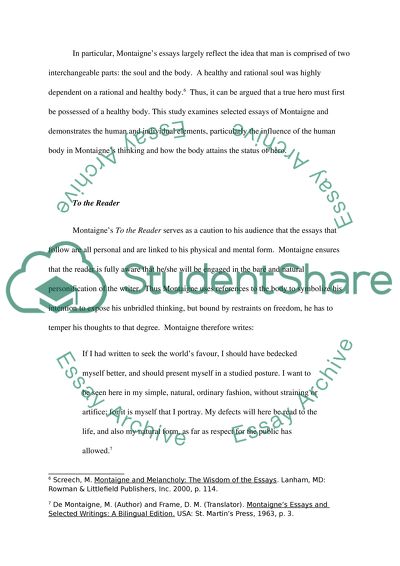Cite this document
(“Representations of the Body in the Essays of Michel de Montaigne Essay”, n.d.)
Representations of the Body in the Essays of Michel de Montaigne Essay. Retrieved from https://studentshare.org/literature/1441138-ychin-the-end-it-is-the-body-yt-whether-deformed
Representations of the Body in the Essays of Michel de Montaigne Essay. Retrieved from https://studentshare.org/literature/1441138-ychin-the-end-it-is-the-body-yt-whether-deformed
(Representations of the Body in the Essays of Michel De Montaigne Essay)
Representations of the Body in the Essays of Michel De Montaigne Essay. https://studentshare.org/literature/1441138-ychin-the-end-it-is-the-body-yt-whether-deformed.
Representations of the Body in the Essays of Michel De Montaigne Essay. https://studentshare.org/literature/1441138-ychin-the-end-it-is-the-body-yt-whether-deformed.
“Representations of the Body in the Essays of Michel De Montaigne Essay”, n.d. https://studentshare.org/literature/1441138-ychin-the-end-it-is-the-body-yt-whether-deformed.


